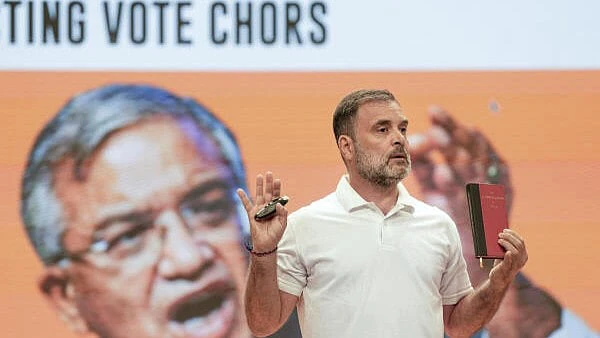Congress leader Rahul Gandhi has made a series of grave allegations about “vote theft” in Karnataka. First, it was Mahadevapura, where, sometime ago, he charged that more than one lakh fraudulent entries were on the rolls.
Now it is Aland, where he claims thousands of voters were deliberately deleted. Independent verification confirmed some irregularities in Mahadevapura, lending credence to his concerns. But the Election Commission (EC) responded bizarrely, asking him to swear an oath under an irrelevant provision of law rather than investigating the charges. This was a clear dereliction of duty by an institution tasked with conducting free and fair elections.
In the case of the Aland Assembly constituency, however, Gandhi’s claims falter. He alleged that over 6,000 voters were sought to be deleted through a coordinated, software-driven operation targeting Congress supporters. The EC has clarified that only 24 deletions were genuine, not thousands, and that all relevant information, including IP addresses and details of objectors, had been handed to investigators.
Here, Gandhi appears to have exaggerated his case. But exaggeration does not erase the seriousness of the malpractice that has been detected. That even a small number of deletions were filed using external mobile numbers and suspicious methods raises legitimate questions. Was this part of an organised, technology-driven operation? If so, could this have been replicated in other constituencies on a bigger scale? This requires a thorough, independent probe.
Gandhi also errs in his political posturing. He maintains that his duty is only to “lay out the facts” and not to save democracy. This hit-and-run approach weakens his credibility. If the EC is indeed stonewalling, he has the option – and the responsibility – to approach the courts. The Congress’s argument that the law shields Election Commissioners from legal scrutiny is misleading. Immunity applies to officials personally, not to the larger question of electoral malpractice, which remains open to judicial review. The EC too has much to answer for.
By dismissing Gandhi’s charges without demonstrable rigour and by resorting to deflections rather than transparent engagement, it has undermined public trust. An institution that should be above suspicion has, instead, fuelled doubts about its independence. Ultimately, the protection of democracy cannot rest on rhetorical charges from politicians or evasive replies from regulators.
Gandhi must pursue his allegations through proper legal and institutional channels, while EC must shed its defensiveness and investigate with transparency. In the battle for electoral integrity, half-truths and bureaucratic resistance are equally dangerous. India’s democracy deserves better from both its political leaders and constitutional guardians – accountability that goes beyond partisan point-scoring to genuine institutional reform.
